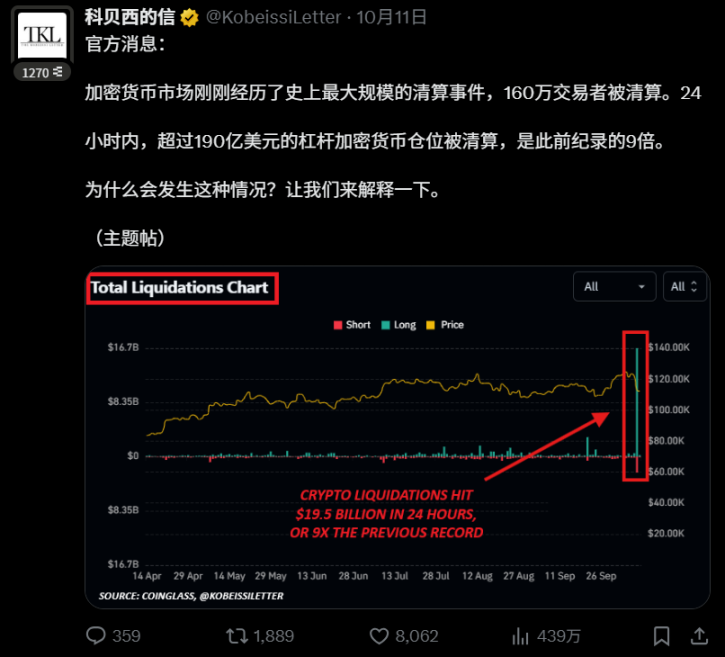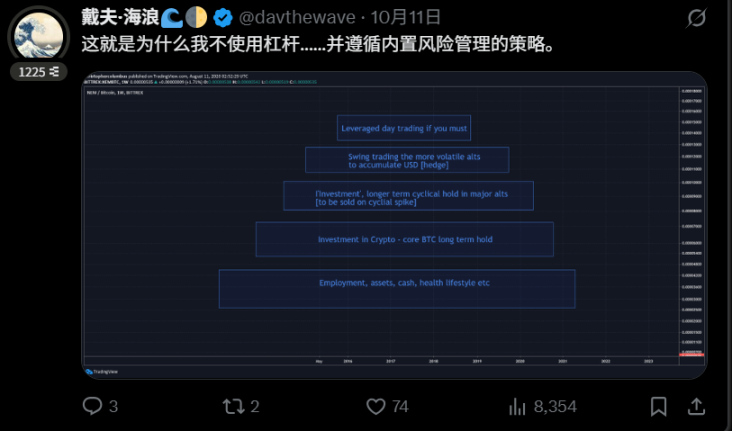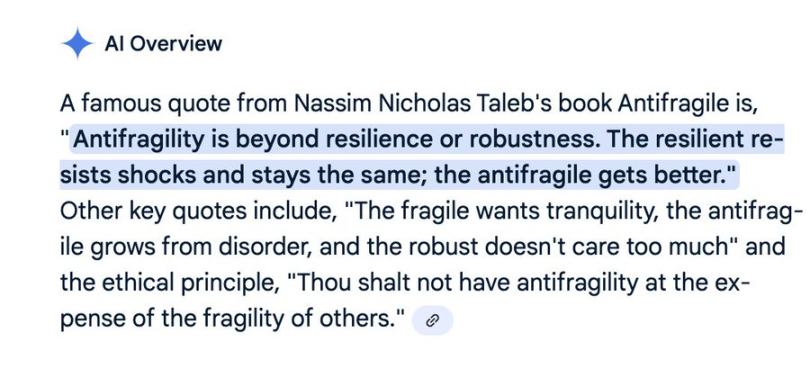Being cautious in the crypto space is just a slow way to stay poor.
Written by: Rosie
Translated by: AididiaoJP, Foresight News
On October 10, 2025, $19 billion was liquidated within 24 hours, leaving 1.6 million traders with nothing.
This was the largest liquidation event in the history of crypto, with a scale nine times greater than the previous record.
And six months later, everyone will come back to do the exact same thing, likely including me.

Everyone Became an Expert Overnight
After the crash, crypto Twitter turned into a risk management seminar. "You should have stayed anti-fragile," "Never use leverage," "This is why I hold cash."
Interestingly, the loudest voices were always those who had been holding stablecoins. Where were these insights on October 9? Oh right, you were busy posting about missing out on the rally.

The True Meaning of "Anti-Fragile" (and Why It Doesn't Apply Here)
People have been misusing the concept of anti-fragility without understanding it.
Anti-fragile does not mean "be cautious." It means benefiting from volatility; chaos makes you stronger, not weaker.
But the problem is: leveraged traders do not benefit from volatility; they are destroyed by it.
When you go long with 10x leverage and the market drops 15%, you do not become stronger from the chaos. You get liquidated, and that is not anti-fragile. That is just a few more steps of fragility.
True anti-fragility means you do not rely on any single condition; yet everyone in crypto relies on one thing: prices going up, or at least not crashing 15% within 20 minutes.
Robust vs Anti-Fragile
Robust = "I don't want volatility to affect me"
Anti-Fragile = "I want volatility to make me stronger"

Holding stablecoins? That's at best robust. You are protected, but you cannot benefit from market fluctuations. You also cannot benefit from a rally; you are just present, safe, and poor.
And these are the very people who shout the loudest about "just staying anti-fragile." They are on the sidelines, missing out on everything, and now feel vindicated because others are suffering.
Using leverage? That's just fragility; volatility will destroy you.
So what is truly anti-fragile in the crypto space? Honestly, no one has figured it out. Maybe it's those who short before major news releases, but that seems more like they just have insider information.
The Game We Are All Stuck In
Here’s a fact no one wants to admit: in the crypto space, you cannot "not play" with leverage.
Completely on the sidelines? You will watch everyone around you make money over the months. Your purchasing power will erode in ongoing inflation, and opportunities will vanish.
And to be honest, if you only have $5,000 to play with, you won't make life-changing money through spot trading. So people use leverage, not because it's smart, but because turning $5,000 into $6,000 in a year doesn't change anything.
Being on the sidelines feels responsible until you see everyone else making 10 times their money while you are still being "smart." At least being destroyed means you tried.

Why Everyone Will Repeat the Mistakes
Six months later, those who lost everything will use leverage again, not because they are foolish, but because what is the alternative?
To hold stablecoins forever while the next cycle happens in your absence? Watching others buy houses with Dogecoin profits while you remain "smart"?
Everyone knows those who missed out when Bitcoin was $100, Ethereum was $10, and Solana was $1. They were always "cautious." Now they are still working 9 to 5 while others have retired.
Being cautious in the crypto space is just a slow way to stay poor.
We All Know the Game is Rigged
You know the game is rigged, you know some people have better information, you know the infrastructure will collapse during a crash, you know all of this.
But the problem is: everyone else is playing. And when everyone else is playing, you are not making an independent choice; you are reacting to the behavior of everyone around you.
This is essentially just a coordination game. When your entire social network is in crypto, when your timeline is filled with profit screenshots, when opportunities flow to those who participate, being on the sidelines means you are left behind.
If you are the only one not at the table, you won't make life-changing money. If you don't participate, you cannot maintain a connection to the ecosystem.
Why Those "Experts" Are Talking Nonsense
Those giving advice after October 10 fall into a few categories:
They were also liquidated but won't admit it. They are on the sidelines, missing the entire rally, and now seeing others lose money feel vindicated. Or they just got lucky and think it’s their skill.
Those holding stablecoins are the worst. They have been on the sidelines for months, posting regretful messages while everyone else is making money. Now they feel superior because someone else got liquidated.
No one really understands this. We are all just placing different bets in an uncertain game.
What Might Happen Next
Here’s the cycle everyone has seen:
Months 1-2: Everyone swears off leverage. "Never again." "Cryptocurrency is a scam." "I’m out."
Months 3-4: New narratives emerge. Those who stay start posting profits. FOMO slowly builds.
Months 5-6: Leverage returns. "This time it’s different." "I learned my lesson from last time." "Just a small position."
Then everything repeats.
Most people will become part of this cycle. Not because they are foolish, but because the alternative is sitting on the sidelines watching everyone else play.
Both Choices Are Bad
You can participate and risk being liquidated. Or you can stay on the sidelines and watch everyone else potentially change their lives.
The logical response to information asymmetry should be smaller positions, longer time frames, and more diversification. But that’s not what actually happens because when everyone around you is using leverage and posting profits, a conservative strategy feels like losing.
This is not rational; it’s reflexive. You are not making decisions in a vacuum; you are making decisions while watching everyone else make money with the strategies you are avoiding.
If You Got Destroyed on October 10
If you lost everything, take a break.
Close the charts, delete the apps for a while, go for a walk, hit the gym, talk to people who don’t know what perpetual contracts are.
The FOMO will still be there in a month, the narratives will continue, and cryptocurrency will not disappear.
But rushing to recover your losses while your mindset is unbalanced? That will get you destroyed twice.
Accept the loss, learn what you can. Come back when your mind is clear, not when you are desperate to make up for losses.
Remember: those shouting to be anti-fragile may not have participated at all; don’t let them make you feel worse for having tried.
免责声明:本文章仅代表作者个人观点,不代表本平台的立场和观点。本文章仅供信息分享,不构成对任何人的任何投资建议。用户与作者之间的任何争议,与本平台无关。如网页中刊载的文章或图片涉及侵权,请提供相关的权利证明和身份证明发送邮件到support@aicoin.com,本平台相关工作人员将会进行核查。




